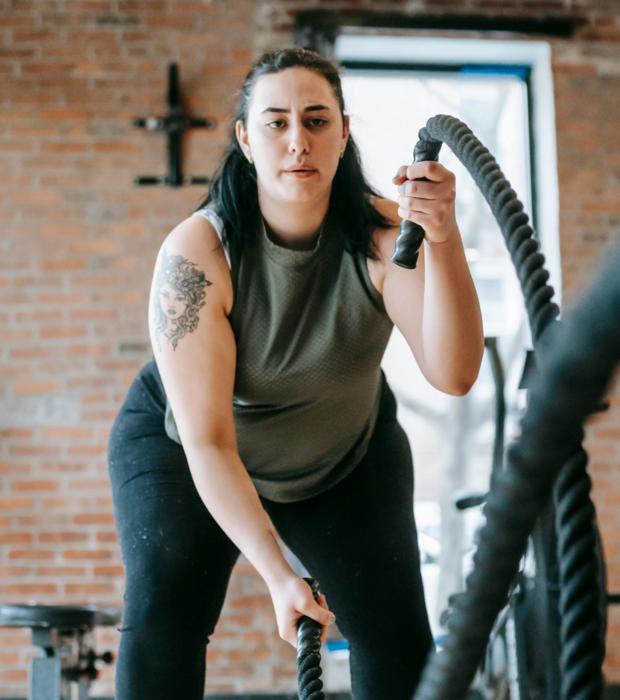
Women often confront immense societal pressures when entering gym environments, where their body image is subjected to scrutiny and judgment. An exploratory mixed-methods study conducted by Emma Cowley from the SHE Research Centre at TUS in Ireland, alongside Jekaterina Schneider from the University of the West of England, U.K., dives deep into these complexities. Published in the open-access journal PLOS One on January 29, 2025, this investigation sheds light on the barriers faced by women during their fitness journeys, revealing a multi-faceted landscape characterized by both hardship and resilience.
The research draws attention to the significant health improvements associated with regular exercise, noting that it provides greater benefits to women than men. Despite these benefits, a concerning disparity in activity levels persists, as women often lead less active lifestyles than their male counterparts. This underrepresentation in physical fitness spaces calls for an urgent exploration of the factors dissuading women from fully engaging in their exercise routines.
Utilizing an online survey with 279 participants—of which 84% are current gym members—the study illustrates that women often navigate a realm of judgment, where their appearance and exercise performance can provoke feelings of inadequacy. Many respondents reported a continual struggle for both physical space within gym settings and the foundational respect required to pursue their fitness goals, facing challenges typical of male-dominated environments. Harassment and unsolicited comments further exacerbate these trials, creating an unwelcoming atmosphere for those seeking to improve their physical well-being.
One poignant theme emerges from the study: the paradoxical relationship women have with gym attire. On one hand, clothing can serve as a protective facilitator to exercise, while on the other, it becomes a source of anxiety and self-doubt. The findings echo past literature, indicating that comfort and functionality are primary considerations when selecting attire. However, the fear of judgment regarding appearance and outfitting often leads women to wear clothing designed to obscure perceived body flaws, such as visible sweat marks or the lack of high-end brands.
The researchers emphasize that the demographic composition of survey participants—a majority White, able-bodied, and of “normal” weight—may limit the broader applicability of these findings. They advocate for future studies with more diverse samples, recognizing that experiences in gym settings can drastically differ based on race, body type, and socio-economic status. Such diversification aims to create a more inclusive understanding of women’s fitness experiences.
An overarching theme throughout the research is the dual pressure many women experience within gym culture: the challenge of being perceived as either “too much” or “not enough”. This societal scrutiny manifests in unrealistic body ideals—once primarily focused on thinness, but now increasingly centered on muscularity and athleticism. Such evolving standards contribute to a precarious environment in which self-worth is often arbitrarily tied to physical appearance and exercise success.
Despite the myriad challenges detailed in the report, a significant portion of participants reported finding strength in gym spaces through skill mastery and supportive communities. There is a burgeoning sense of empowerment among women who break traditional gender norms and engage in activities typically characterized by male dominance. Such narratives provide hope and underline the importance of creating environments where women feel valued and capable.
The authors propose a multi-level strategy to enhance women’s comfort and accessibility within gyms. Suggestions include promoting inclusive gym policies, fostering training programs to educate staff on gender sensitivity, and creating community-focused fitness events designed for women. Such measures could actively dismantle barriers and empower women to take ownership of their fitness journeys.
The socio-cultural implications of this research cannot be understated. Understanding the psychological factors that influence women’s relationships with exercise facilities is essential for developing programs that encourage active living. It also shines a light on the importance of social support networks, which can play a crucial role in mediating potential negative experiences in the gym.
Indeed, the researchers underscore the necessity for gyms to evolve from mere spaces of exercise into welcoming communities. The shift from perceiving exercise as a chore dictated by societal standards to viewing it as a personal journey can foster not only physical health but also mental resilience.
As this crucial research underscores, the need for ongoing dialogue surrounding body image, exercise, and women’s rights to space and autonomy in gym settings is imperative. Ensuring that women feel free to occupy and express themselves in gym environments will not only enhance individual health outcomes but also promote a holistic cultural shift toward acceptance and empowerment.
This exploration of women’s experiences in exercising spaces opens the door for further inquiry into the complex interplay of gender, body image, and societal expectations. The authors call upon future researchers to delve deeper into the various identity facets that influence these experiences and contribute to a more nuanced understanding of the barriers women face.
In conclusion, the work conducted by Cowley and Schneider transcends mere academic inquiry; it reflects a cultural urgency to champion women’s health and self-empowerment in gym environments. As society grapples with evolving standards of beauty and fitness, fostering a gym culture that prioritizes inclusivity and appreciation for diverse body types will be essential in achieving greater participation rates among women.
Subject of Research: Women’s body image and experiences exercising in gym settings
Article Title: “I sometimes feel like I can’t win!”: An exploratory mixed-methods study of women’s body image and experiences of exercising in gym settings
News Publication Date: January 29, 2025
Web References:
References:
Image Credits: Andres Ayrton, Pexels, CC0
Keywords: Women’s fitness, body image, gym environment, exercise barriers, empowerment, survey research, societal pressures, gender norms, inclusivity, health benefits.
Tags: barriers to women’s fitnessbody image issues in gymsemotional impacts of gym environmentsgender disparities in exercisegym harassment experienceshealth benefits of exercise for womenmixed-methods research in fitnessnavigating judgment in fitness spacesresilience in women’s fitness journeyssocietal pressures on womenWomen in fitnesswomen’s representation in gyms





